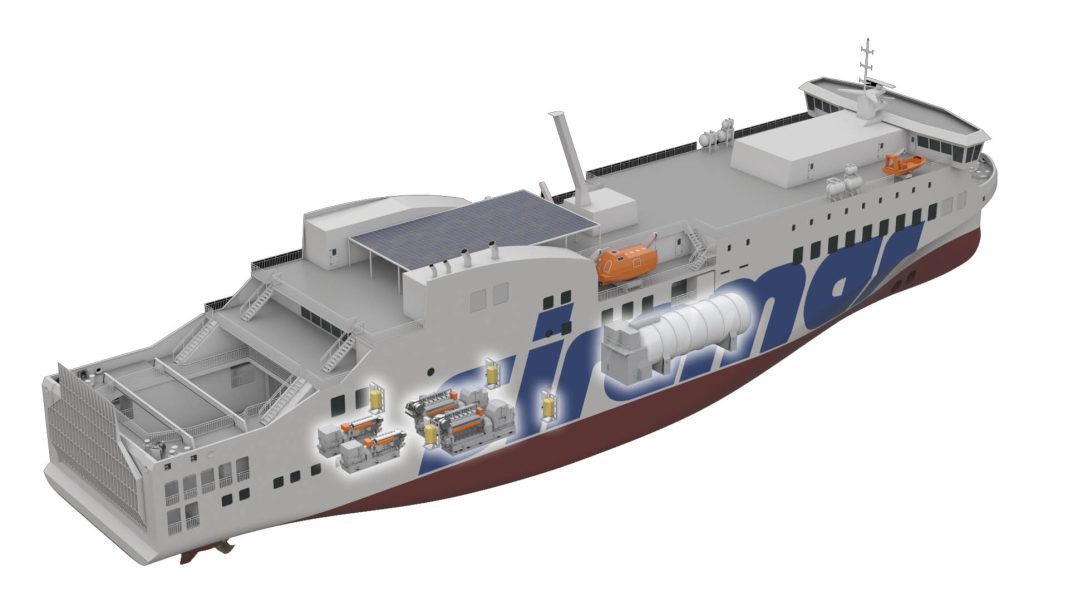The technology group Wärtsilä, a pioneer in enabling the viability of LNG as a marine fuel, will provide the main and auxiliary engines, as well as the fuel storage and supply system, for a new Italian ferry designed to operate on LNG. Wärtsilä’s extensive experience in LNG applications, and its broad portfolio of related products, were cited as key considerations in the contract award.
The vessel is under construction at the Sefine shipyard in Turkey and has been ordered by Caronte & Tourist Isole Minori, based in Milazzo, Italy. The order with Wärtsilä was placed in the first quarter of 2021.
Given its environmental advantages, LNG continues to gain popularity throughout the shipping industry. The fuel contains no sulphur or particulate matter and emits only low levels of nitrogen oxides (NOx), while CO2 emissions are some 20 percent less than those from HFO fuel.
Wärtsilä’s early development of dual-fuel engines and fuel systems capable of handling LNG, together with the global build-up of a delivery and bunkering infrastructure, has been largely instrumental in enabling its viability.
This latest order comprises two Wärtsilä 34DF dual-fuel main engines, two Wärtsilä 20DF dual-fuel auxiliary engines, two Wärtsilä Gas Valve Units, and a Wärtsilä LNGPac fuel storage, supply, and control system.
The equipment is scheduled for delivery to the yard in spring 2022, and the ferry is expected to be delivered in 2023.
“We are very familiar with Wärtsilä and rate both their products and their support very highly. When the decision to operate primarily on LNG fuel was made, it became clear that Wärtsilä was the most experienced and qualified supplier to use,” says Luigi Genghi, Managing Director of Caronte & Tourist
“This is our second project for the same owner and shipyard, and repeat orders are always an encouraging testimony of satisfaction. Our reference list of ferries operating with the Wärtsilä 34DF engine is indeed impressive, and we are pleased to add to it with this order.
“The flexibility of our dual-fuel technology is important for ferry operators because of the importance of redundancy. Should, for any reason, LNG be not available, the engine can switch to a conventional fuel in milliseconds, and the ferry schedule remains uninterrupted,” says Giammario Meloni Senior Sales Manager, Wärtsilä Marine Power
The 109.98m ferry will be capable of accommodating 800 passengers and up to 115 cars on two vehicle decks. It will mainly operate between Milazzo in Sicily and the Aeolian islands.
The new ferry showing the layout for where the Wärtsilä engines will be installed. © Pictures courtesy of NAOS


